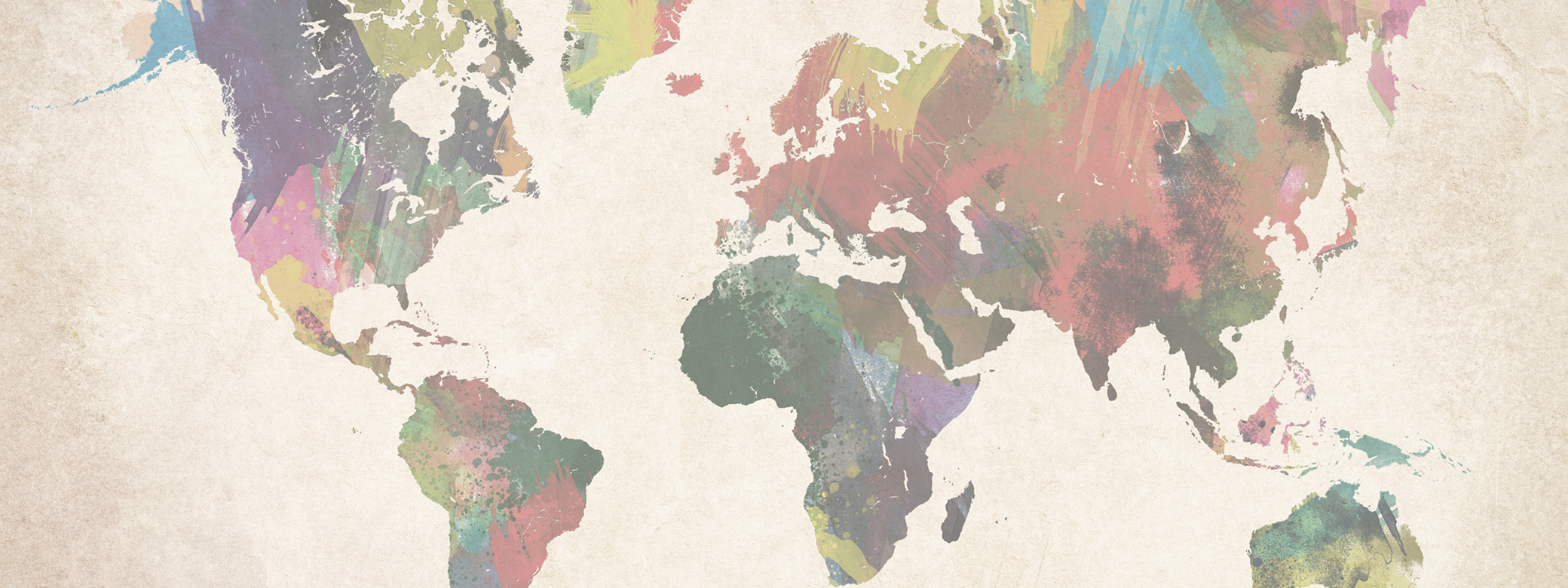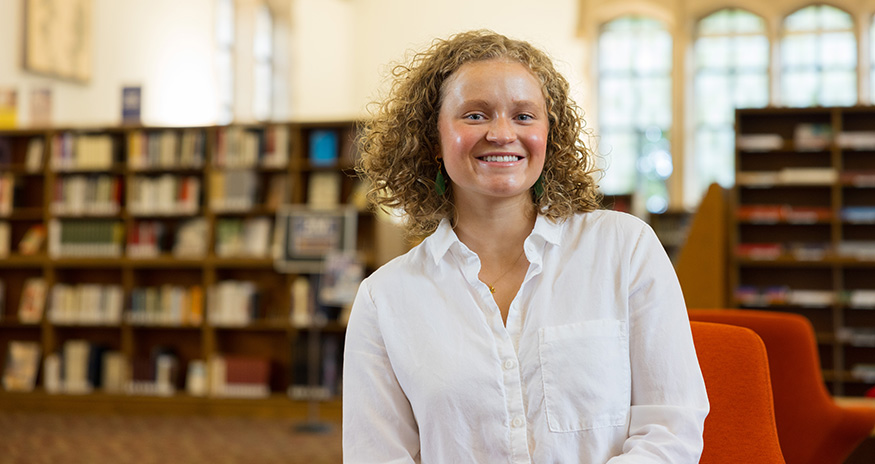
When it comes to exploring the world, Grace Kelly doesn’t play favorites. She grew up visiting relatives in Ireland most summers and briefly lived with a host family in Barcelona during high school. Her first UW study abroad was in Vietnam, and she chose the East Asian track of the international studies major in the Jackson School of International Studies, but she also spent a semester in Spain, studying at a university in Madrid. And she was drawn to courses about Eastern Europe and Russia.
“I’m a curious person, and everything in the Jackson School sounded so interesting that it was hard to focus on just one region,” says Kelly, who graduated from the UW College of Arts & Sciences this month with departmental honors.
Kelly long envisioned a career in the US Foreign Service, exploring the world while promoting diplomacy. She has put that idea on hold for the moment, but it is still her long-term goal. In the meantime, her passport is always within reach.
The Legacies of War
Though she is a dual citizen of the US and Ireland, Kelly is as homegrown to the University of Washington as it gets. Born and raised in Lake Forest Park, Washington, just north of Seattle, she is the daughter of a UW alum. The family visited the campus often, especially during cherry-blossom season.
By the time Kelly arrived as a first-year student, she was set on majoring in international studies. “I love traveling and learning different cultures and languages, so I declared the major by the end of my freshman year,” she says.
A month-long study abroad program in Vietnam only strengthened Kelly’s resolve. The program, “Building for Peace in the Wake of War,” is offered by the UW’s Department of Comparative History of Ideas (CHID) and focuses on the legacies of war from the Vietnamese perspective.
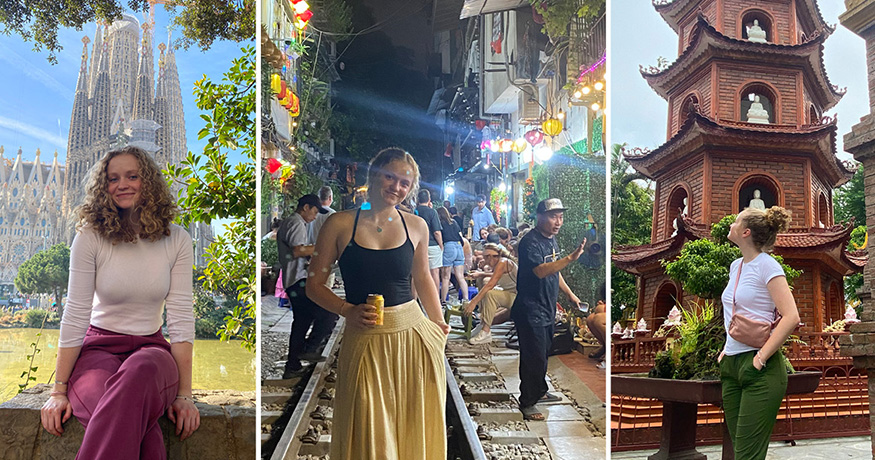
“In a lot of Western discourses, you don’t really hear the Vietnamese story about the war and the history behind it,” says Kelly. “That’s not taught often in high school programs. It’s still a bit of a taboo subject.”
Students in the Vietnam program worked closely with PeaceTrees Vietnam, an NGO that helps communities in Central Vietnam impacted by Unexploded Ordinance (UXOs). The NGO removes dangerous explosives (no students involved) including cluster munitions, landmines, mortar shells, and grenades. Once it returns the land to safe use, it creates community-led economic opportunities for those living in affected areas.
“There are still a lot of landmines in Central Vietnam,” Kelly explains. “At least three times as many bombs were dropped in Vietnam, Laos, and Cambodia during the Vietnam War compared to the total bombs dropped by the US and its allies in all of World War II. It’s a staggering number. They haven’t even gotten halfway through removing the mines. The area is agricultural, but you can’t farm where there are mines in the ground.”
While UW students were not involved in de-mining, they did lend a hand on a coffee plantation and helped build a goat farm, both on sites de-mined a few years ago. They also met with members of the local community to learn their stories. “We got to meet people I would never have met otherwise and do work that’s impactful,” says Kelly. “I felt really inspired by that experience.”
To Spain, Then DC
Four months after returning from Vietnam, Kelly left again for a semester in Madrid. Her primary goal was to strengthen her Spanish language skills. CIEE, a study abroad organization, connected her with a host university and host family. Half of Kelly’s classes were offered by CIEE in English; the rest were in Spanish at the Universidad Antonio de Nebrija.
“In Madrid there are still many people who don’t speak English, so I got to really practice my Spanish hardcore,” says Kelly. “The host family I lived with, I still think of them every day.”
Kelly was soon on another flight, this time to Washington, DC for a 2024 summer internship with the US State Department’s Bureau of East Asian and Pacific Affairs. She interned with the Office of Mainland Southeast Asia, which covers Burma, Cambodia, Thailand, Laos, and Vietnam. Her tasks included preparing and sending end-of-day reports to embassies abroad, escorting visiting diplomats, taking notes at briefings and think-tank events, and helping elsewhere as needed.
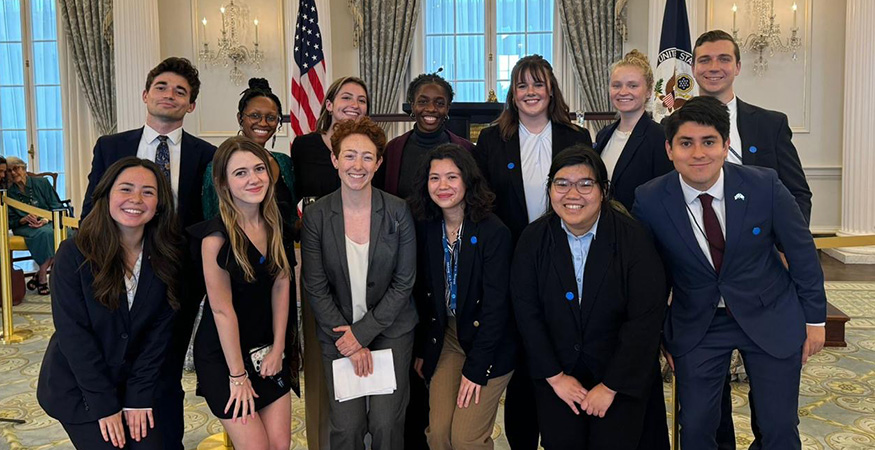
Kelly’s internship managers also encouraged her to network with other State Department staff, including coffee chats to learn about various State Department career opportunities and regional bureaus.
“The managers put a lot of effort into making sure their interns were well taken care of and learned a lot,” says Kelly, who still recalls the thrill of being sworn in as an intern by then-US Secretary of State Antony Blinken. Unfortunately, the internship program — which had been created during the Biden Administration — was recently discontinued due to a government hiring freeze. “I feel very blessed to have been one of the few people that had that experience,” Kelly says.
Plans for Now — and Later
While the State Department internship further confirmed Kelly’s interest in serving as a Foreign Service officer, circumstances nationally and in her personal life have led her to postpone that dream. For now, she’ll focus on opportunities closer to home.
Having recently completed a 70-page honors thesis about the resettlement of North Korean refugees in the United States, Kelly is considering NGO work related to refugees, or other opportunities in the private sector. She also hopes to remain involved with PeaceTrees Vietnam, which has offices in Seattle and Vietnam. Delaying her Foreign Service plans may actually work in her favor, she says.
“All of the Foreign Service officers I worked with had other careers prior to joining the Foreign Service,” she explains. “My supervisor was a reporter. Someone else was a security consultant. That helped me realize that doing something else for a little bit could make me a better diplomat later on. So I’m pivoting for now — but I’m keeping the Foreign Service on the back burner.”
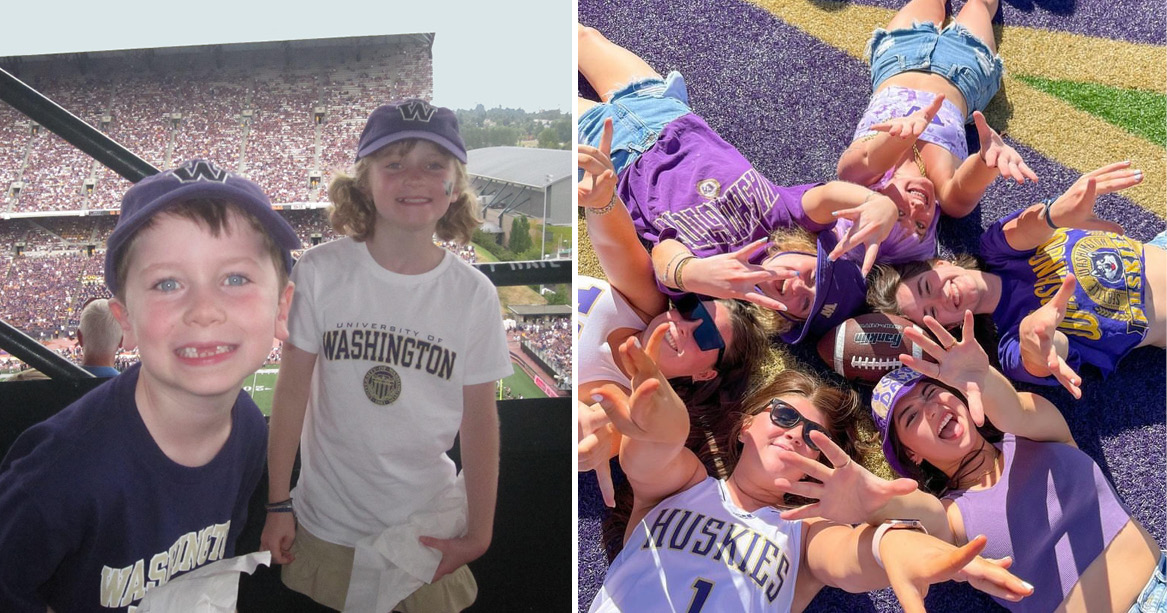
More Stories

What Students Really Think about AI
Arts & Sciences weigh in on their own use of AI and what they see as the benefits and drawbacks of AI use in undergraduate education more broadly.

AI in the Classroom? For Faculty, It's Complicated
Three College of Arts & Sciences professors discuss the impact of AI on their teaching and on student learning. The consensus? It’s complicated.

Bringing Music to Life Through Audio Engineering
UW School of Music alum Andrea Roberts, an audio engineer, has worked with recording artists in a wide range of genres — including Beyoncé.
